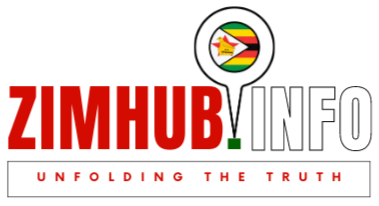CHIPO MANDAZA
Zimbabwe re-engagement campaign and debt resolution plan with Bretton Woods institutions and other international creditors could be in limbo following elections held last week that have resulted in political tensions amid fears of instability, multiple analysts said yesterday.
President Emmerson Mnangagwa won last week’s elections ahead of his closest rival Nelson Chamisa of the Citizens’ Coalition for Change (CCC) in the polls that also saw Zanu PF garnering 136 seats against the opposition’s 77 in the National Assembly.
However, Chamisa has refused to concede defeat while some election observers, particularly those who represented SADC, argued the elections fell short of being credible, free and fair as per international and regional standards.
The international creditors imposed a number of stringent conditions precedent, one of which was that Zimbabwe hold free and fair elections.
With arrears of about US$6.68m Zimbabwe has been working to pay off its external debt which stands at US$12.8bn. The conditions were reached during a recent conference call between the Mnangagwa’s administration and its foreign creditors.
Out of this, Zimbabwe owes the World Bank about US$1.4bn, African Development Bank (US$671m), the European Investment Bank (US$372m), while the Paris Club and non -Paris Club are owed US$3.55bn and US$2.22bn respectively.
Zimbabwe’s credit rating has been impacted by the debt, making it an outcast on global capital markets. Therefore, paying off the debt is a mandatory requirement before obtaining new international funding.
Due to the impasse, the agreement might not be approved, analysts argue.
Ibbo Mandaza, a political analyst, told this publication yesterday that Zimbabwe missed a chance to make a significant diplomatic impact abroad.
“The elections were not only disputed by SADC but by majority observer missions which include Commonwealth and EU resulting in a flawed process. By these explanations the elections were not free, fair and credible,” Mandaza said.
Mandaza added: “This will certainly affect Harare’s engagement and re-engagement drive as it failed to hold an incredible election which was a requirement for the arrears clearance and debt resolution plan approval.”
The re-engagement and debt arrears clearance deal is being championed by the President of the African Development Bank, Akinyumwi Adesina, and supported by the former President of the Republic of Mozambique, Joachim Chissano. Eldred Masunungure, a political scientist at the University of Zimbabwe stated that the difficulties related to the Zimbabwean elections are probably going to have an impact on the debt resolution strategy as the procedure was part of the important future discussions.
“The multilateral and bilateral institutions are still reviewing the electoral processes and electoral outcomes on what steps to take in order to either move forward on arrears clearance and debt resolution.
“I would think they would want to digest what this means in terms of the governance requirements that are in the framework that they agreed with Zimbabwe.
“But the EU as the key player and key actor among other key stakeholders appear not to be overly satisfied with the results of the elections and the processes leading to the results may complicate the negotiations going forward,” Masungure said. However, the Confederation of Zimbabwe Retailers president Denford Mutashu said the elections were free and fair.
“The elections were conducted in a free and fair manner.This is an utmost win against neo-colonialism and imperialism,” Mutashu said.
He added: “The President Elect’s win is a firm foundation for the continuation of robust infrastructure development and economic growth. The victory symbolises the trust that the people of Zimbabwe have in President ED Mnangagwa’s astute leadership. The business community endorses the outcome and promises to continue working with him in the coming exciting five years. Zimbabwe has won.”

